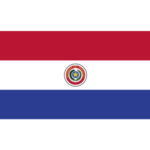

The latest national energy balance report published by the Vice Ministry of Mines and Energy (“VMME”) in 2022 reveals that Paraguay’s energy matrix is made up of 74% renewable energy in the gross supply. However, there is a high dependence on petroleum derivatives in final energy consumption, which poses challenges in terms of sustainability.
According to the report on the energy sector in Paraguay published by the Inter-American Development Bank (IDB) in 2022, one of the challenges of the sector is to explore new alternatives to produce energy through the use of non-conventional renewable energies (“NCRE”). Furthermore, the report points out that unsustainable energy consumption patterns with a high dependence on petroleum derivatives reveal the need to take measures regarding energy efficiency.
Paraguay has abundant natural resources, which will play an important role in the diversification of the energy matrix, the mitigation of climate change and the economic growth of the country, in line with the Sustainable Development Goals (SDGs).
During this year, there have been legislative advances that seek to promote the development of renewable energies in Paraguay. On the one hand, in January 2023, Law No. 6977 “Which regulates the promotion, generation, production, development and use of electrical energy from non-conventional, non-hydraulic renewable energy sources” was enacted (the “Law of ERNC”). On the other hand, in March 2023, a bill was presented to Congress that aims to establish a legal framework for the use, storage, marketing, distribution, transportation and export of hydrogen (the “Hydrogen Bill”) .
Below, we summarize the most relevant aspects of the NCRE Law and the Hydrogen Bill.
The NCRE Law
This law aims to promote and regulate the generation and use of electrical energy from non-conventional, non-hydraulic renewable sources. NCRE are crucial to diversify the energy matrix and reduce greenhouse gas emissions.
Subjects
The production of electrical energy from NCRE sources can only be carried out by natural or legal persons domiciled in Paraguay. NCRE energy production licensees can be classified into: (i) self-generators, (ii) co-generators, (iii) exporters and (iv) generators.
License
The law establishes that the production of NCRE with a nominal capacity greater than one megawatt (MW) requires a license granted by the Ministry of Public Works and Communications (“MOPC”), through the VMME and a registration in the NCRE registry. The duration of the license is up to 15 years and can be renewed at the request of the licensee.
ERNC Autogenerators and Cogenerators
ERNC self-generators are those that have a license to produce electrical energy to meet their own consumption, and can inject their surplus energy into the National Interconnected System (“SIN”).
NCRE cogenerators are those that have a license to produce steam or other subsidiary energy for industrial or commercial use, along with electrical energy from NCRE sources, and can inject surplus energy into the SIN.
The law establishes the conditions and regulations for NCRE autogenerators and cogenerators, including supply limitations, remuneration rates, installation of measurement systems, connection and reinforcement works.
In the event that the NCRE autogenerator or NCRE cogenerator requires connection to the SIN, it must sign a contract with the National Electricity Administration (“ANDE”). This contract will be signed after obtaining the ERNC license.
NCRE Generators
Generators are those that have a license to produce electrical energy from NCRE sources to supply it to the ANDE. These generators cannot exceed the energy capacity allowed by the license and can subscribe to the contract for a maximum period of 15 years. The acquisition of energy from NCRE generators by ANDE must be carried out through bidding processes.
The ANDE may carry out tenders for the acquisition of electrical energy from NCRE generators, only when they are intended to cover internal demand and/or replace the energy to be produced by the ANDE.
NCRE Exporters
NCRE exporters are those that have a license to produce electrical energy from NCRE sources for export purposes.
ANDE must provide non-discriminatory access to the available capacity of its electrical energy transmission facilities in order to facilitate international interconnection, provided that the use of the transmission capacity does not put the supply to national consumers at risk.
The NCRE exporter must sign a contract with ANDE, in which the rights and obligations related to the transportation of electrical energy are established. In addition, the NCRE exporter will pay ANDE a toll for the use of the electrical energy transmission facilities, in accordance with the contracted available capacity. The value of the toll will be established by the MOPC, through the VMME, prior to the opinion and recommendation of the ANDE.
In case of lack of transport capacity, the exporter can carry out new works to the SIN for the purposes of expanding it, which will become the property of ANDE.
Incentives
The law determines a series of tax incentives established by law to encourage the production and use of renewable energies that are applied to the construction of equipment and works intended for the production of electrical energy from renewable sources. Beneficiaries must meet viability requirements and among the authorized projects are wind farms, solar installations and biomass plants, among others.
Fee
The MOPC, through the VMME, will receive a fee equivalent to 1% of the transactions carried out by the licensee, for which a sworn declaration of the income resulting from the commercial balance will be presented.
Hydrogen Law Project
The Hydrogen Law Project is still under study, and establishes the regulatory framework for activities related to the production, use, marketing, storage, transportation, distribution and export of hydrogen.
Application Authority
The MOPC is established as the application authority, through the VMME. The application authority is also the coordinator of the Interinstitutional Hydrogen Table (the “MIH”). The MIH will be made up of government institutions to coordinate and regulate activities related to hydrogen. In particular, the MIH will coordinate actions to establish quality and safety parameters.
Registry
A single registry is created for natural and legal persons that carry out activities in the hydrogen value chain. This registry will be implemented by the MOPC, through the VMME, in coordination with the Ministry of Industry and Commerce (MIC).
Authorization regime
The following facilities for: (i) hydrogen production, (ii) hydrogen transportation and distribution, (iii) hydrogen storage, (iv) hydrogen export, and (v) hydrogen marketing require administrative authorization. .
Tax incentives
Subjects dedicated to activities related to hydrogen may benefit from the tax benefits established in Law No. 60/90. Regarding hydrogen used as vehicle fuel, it will be exempt from the selective consumption tax.
Certification
The application authority, together with the Ministry of the Environment and Sustainable Development (MADES), will establish the conditions and certification scheme for hydrogen within the framework of the value chain. Low-carbon hydrogen and green hydrogen may be certified, and the incentives associated with such certification will be regulated.
Decarbonization promotion fund
The promotion fund is created to promote decarbonization and the development of hydrogen projects. This fund will be financed by resources from the National Fund for Public Investment and Development (FONACIDE) or the General Budget of the Nation, as well as by contributions from international organizations. You may also receive contributions, inheritances and donations from individuals, companies and national or international entities, both public and private. In addition, funds collected from fines will be allocated to this fund.
For more information contact:
Carla Arellano | Counselor Ferrere | carellano@ferrere.com





